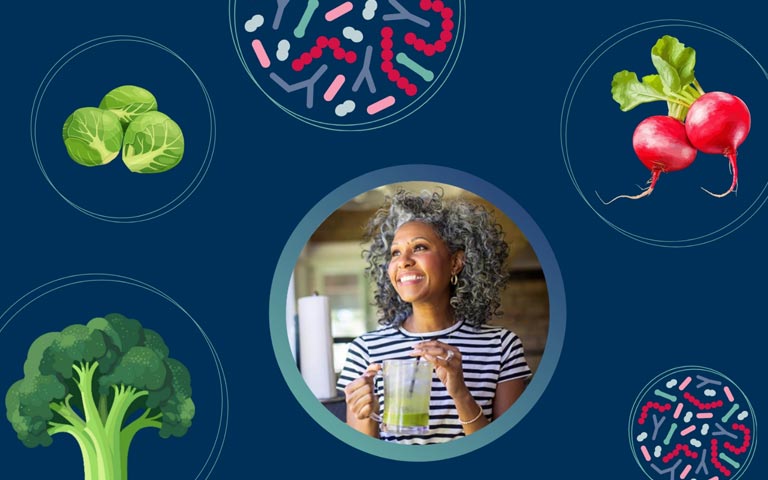The Challenge with Polyphenols
Plant-based diets are celebrated for their antioxidants, thanks to polyphenols like quercetin, catechins, and anthocyanins found in apples, onions, and berries. Yet research shows that polyphenols are often poorly absorbed by the human body (Marín et al., 2015).
How Bacillus subtilis 1579 Works
Research suggests that much of the benefit from polyphenols may come not from the original compounds, but from smaller metabolites created during digestion (Selma et al., 2009). One such metabolite is protocatechuic acid (PCA), which is more bioavailable than quercetin.
At the Arm & Hammer Research Center, Bacillus subtilis 1579 has been shown in-vitro to biotransform quercetin into PCA, providing a new way to help unlock antioxidant activity.
Why It Matters for Antioxidant Support
Consumers are increasingly seeking science-backed solutions for antioxidant support and healthy aging. With Bacillus subtilis 1579, there’s an opportunity to highlight probiotics as more than gut health — as enablers of enhanced nutrient absorption.
👉 Explore how targeted probiotics like B. subtilis 1579 can help maximize the benefits of a healthy diet.
*Based on in-vitro studies.- Marín, L., Miguélez, E. M., Villar, C. J., & Lombó, F. (2015). Bioavailability of dietary polyphenols and gut microbiota metabolism: antimicrobial properties. BioMed Research International, 2015.
- Selma, M. V., Espín, J. C., & Tomás-Barberán, F. A. (2009). Interaction between phenolics and gut microbiota: role in human health. Journal of Agricultural and Food Chemistry, 57(15), 6485–6501.
